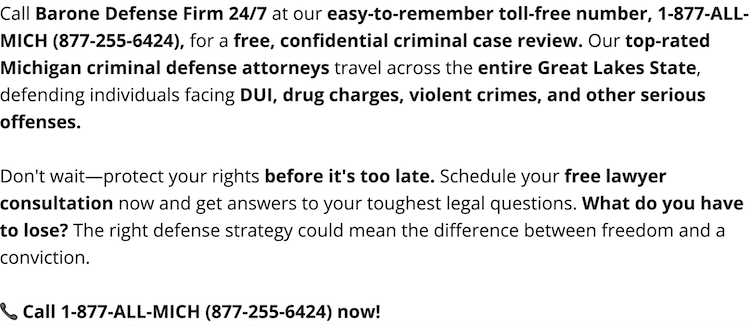What is Pretrial Release in Michigan?
Pretrial release is a cornerstone of Michigan's criminal justice system, allowing individuals charged with crimes to remain free while awaiting trial. At arraignment, the court determines whether the defendant will be held in custody, released on personal recognizance, or granted conditional release with or without financial bail. These decisions are governed by Michigan Court Rule (MCR) 6.106 and reflect the state’s commitment to balancing public safety with the defendant’s constitutional rights.
Recent reforms have shifted Michigan’s pretrial practices to favor release in most cases, emphasizing non-monetary conditions and individualized risk assessments. These changes aim to address inequities associated with cash bail and reduce unnecessary pretrial detention, particularly for nonviolent offenses.
The Legal Framework for Pretrial ReleaseAt arraignment, the court must decide whether to release the defendant or hold them in custody. The law presumes release in most cases unless there are compelling reasons to deny it, such as the severity of the offense or significant risk factors. Under MCR 6.106, defendants may be:
- Released on personal recognizance.
- Released conditionally with specific requirements.
- Held in custody if charged with particularly serious crimes like murder or first-degree criminal sexual conduct, or if they pose a significant danger to the public (MCR 6.106(B)).
The court evaluates factors such as the defendant’s criminal history, community ties, and the risk of flight to determine the appropriate form of pretrial release (MCR 6.106(F)).
Recent Reforms to Michigan’s Pretrial Release LawsIn 2021, Michigan enacted reforms to reduce reliance on cash bail, ensuring that detention decisions are based on risk rather than financial means. Building on these changes, House Bills 4655 to 4662 introduced in 2023 further prioritize non-monetary release conditions. These reforms emphasize fairness and equity, aiming to reduce the disproportionate impact of cash bail on low-income individuals and communities of color.
Courts are now encouraged to impose the least restrictive conditions necessary to ensure compliance and protect public safety. For nonviolent offenses, this often means personal recognizance or minimal conditions rather than monetary bail.
Conditions of Bond During Pretrial ReleaseWhen conditional release is granted, the court may impose specific requirements designed to mitigate risks. These conditions can include restrictions on travel, mandatory substance abuse testing, no-contact orders, and other measures tailored to the defendant's circumstances. For a detailed overview of common bond conditions, refer to our article on Conditions of Bond During Pretrial Release in Michigan.
Frequently Asked Questions About Pretrial ReleaseMichigan law presumes pretrial release in most cases, especially for nonviolent offenses. The court considers factors such as the severity of the charge, the defendant’s criminal record, and community ties. For serious crimes or high-risk situations, the court may require monetary bail or deny release entirely (MCR 6.106(B)).
Recent reforms aim to reduce reliance on cash bail, ensuring that individuals are not detained solely due to financial hardship. If you cannot afford bail, your attorney can petition the court to lower the amount or modify the conditions of release based on your circumstances.
Yes. If you believe the conditions of your bond are overly restrictive, your attorney can file a motion to modify them. Courts must impose the least restrictive conditions necessary, and challenges are especially relevant under Michigan’s reformed pretrial release laws.
The court may require conditions such as abstaining from alcohol, attending counseling, or surrendering a passport. These measures are designed to ensure compliance with court orders and public safety. For more information, see Conditions of Bond During Pretrial Release.
Michigan’s pretrial release framework reflects a growing commitment to fairness and equity, balancing public safety with the rights of defendants. Recent legislative reforms prioritize non-monetary conditions and individualized assessments, reducing reliance on cash bail and promoting more equitable outcomes. If you have questions about pretrial release or need legal representation, contact the Barone Defense Firm for a free no obligation consultation with an experienced attorney who will guide you through this critical stage.
 Barone Defense Firm Home
Barone Defense Firm Home




















